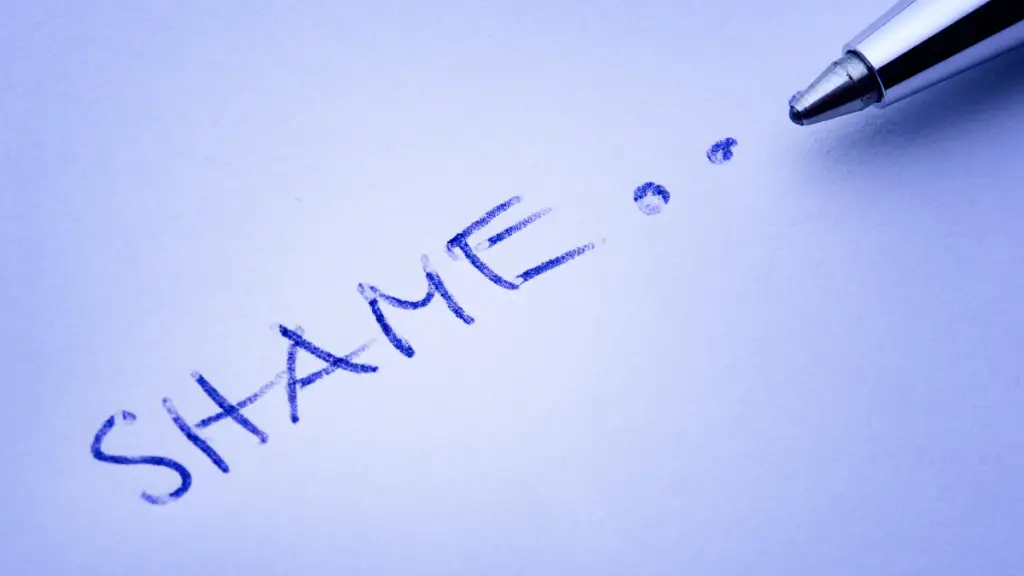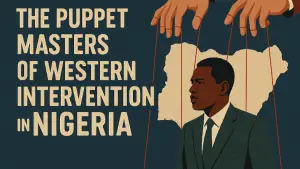Body shaming builds anxiety, tarnishes self-esteem, leads to inferiority complex, forces victims to introvertedness, and often leads to depression. These effects are tailed by a variety of mental health issues. The victims are constantly drowning in a sea of negative emotions and experiences, which more often than not, the perpetrators and the public seem oblivious to. In the succeeding paragraphs, we will be looking at body shaming in Northern Nigeria and reasons why people body shame.
Being body shamed is like adding a drop of water to an already overflowing turbulence. A turbulence that derives its origin from a very tender age. From when the victim was oblivious to its manifestations. When it was the mother who suffered from people telling her her child is ‘Blackie’, ‘ Lekpa’ or ‘ Big headed’. And other sorts of atrocities used as names, specially coined for such appearances.
Unfortunately, body shaming creeps up to a point where the victim begins to understand that he/she is suffering from a condition of universal criticism. Everyday then becomes a potential thunderstorm adding to their sea of accumulated despair.
So why would anyone add a drop of water to an already overflowing turbulence? Ignorance, concern or cruelty? The article explores some of the possible reasons why people body shame others.
Reasons why people body shame others
1. Stereotyping of People’s Appearance into Groups
The world is full of physical stereotypes classified based on race, from large Socioeconomic groups to small family units. There are templates of physical appearances people are expected to fit in based on their race, social class, the status of wealth, occupation, gender, tribe, intellectual capacities, political positions, and more. Some of these stereotypes evolve with time and some are heavily guarded by custodians of culture and history.
In the days of slavery, the slaves thought to be better looking and lighter skin were allowed to work closer to their masters in their households. While darker ones toil in the fields under unfavorable environmental conditions. The intention for this preference was that the masters were only to be surrounded by slaves believed to be better looking. This clearly shows that even slaves could not escape being body-shamed.
The modern world is no exception. In Northern Nigeria, these templates also exist. A queen or the wife of a wealthy person should be an epitome of beauty in order to give birth to offspring worthy of their royal or wealthy status. A prospective bride in Northern Nigeria is expected to bulk up for marriage or appear bulked up post-marriage as a sign she is well taken care of. Politicians are expected to be tall and charismatically built or else they are regarded as a joke. A man should be strong and tall to be able to protect a woman. To mention all the stereotypes existing in northern Nigeria is near to impossible.
The fact remains that any individual who falls within or desires to be part of a group must fit the group’s physical template or otherwise go home. Children in many families often described as ‘The black sheep’ for not taking after the family’s physical traits are constantly made to feel out of place in their own home. One would wonder how these family outcasts later find their place in the world.
Stereotyping people into groups is perhaps one of the biggest reasons while people body shame others in Northern Nigeria and beyond.

2. Using Body Shaming as Self Defense due to Insecurity.
Personal insecurity is a major driving factor of body shaming. Individuals who are insecure about themselves are much more likely to body shame others more than those who are not insecure.
In Northern Nigeria, there are many groups in which people congregate to socialize or have fun. In Gidan kitso (Local Salon), women meet to style their hair, talk about fashion trends, gossip, compare physical traits, and give unsolicited advice. Men congregate in ‘Majalisa’ to talk about sports, politics, their homes, and the economy and also give unsolicited advice. In the home and school, children gather to discuss school, friends, trends, fashion, dating, their fears, and their future. In these congregations, people tend to pick interests in other people’s lives and appearances, a welcome item on the menu.
It is expected for some people to feel superior and some inferior in these gatherings. It is also impossible to stop people from preying on each other in these social groups. One of such preying could manifest in the form of body shaming, hidden in banter or plain cruel bullying, However, this is socially allowed. The rules of the game are, ‘There are no rules’. It’s a crazy social jungle out there where only the ruthless survive.
A person who feels they possess features they are not proud of and could be attacked for is likely to demonstrate behaviors to shield himself from social aggression. He/she diverts the attention of people from him/herself to another person, believing that the second individual is worse than they are, and therefore deserve the assault.
Insecure individuals constantly aim to tarnish another’s self confidence and self esteem such that they escape any shaming dished at them, allowing others to take the fall.
This defensive mechanism where people body shame others to avoid being body shamed is an act of cowardice. They are only avoiding the canine teeth by throwing the bone at others, thereby enabling the perpetrators to continue their acts.
3. Jealousy/Envy
Hassada Mugun ciwo (Envy is a disease)
This is a saying in Northern Nigeria which suggests that Jealousy is an incurable disease. Unfortunately, the cause of this ailment is yet unknown, even though the symptoms are clear. One of such symptoms is an unfailing tendency of one to humiliate, underappreciated or tarnish the image of another that they envy.
Body shaming due to envy could arise from the effort of an individual to refuse to see any positivity in one they envy. They are always bent on fishing out the bad and burying the good.
Such envious individuals fold their hands when everyone is clapping, and turn away their faces when smiles of encouragement are being offered. They go as far as downplaying the achievements of people they envy by doing the easiest and least obvious thing they can. That is by body shaming them. They feel the victims do not have the right to any accolade because of the way they look and would have people only acknowledge their physical shortcomings.
Another saying in Hausaland suggests that ‘It is a blind man who says that eyes have a bad smell’.
The above saying describes another cause of body shaming due to envy. When people cannot have something, they are bound to condemn its advantages. People could body shame others based on color, weight, height that they secretly desire but cannot have.
An envious friend could convince her dark friend that her color is unappealing only so that she can watch her destroy her face with bleaching products. In this scenario, she has used body shaming to worsen the appearance of her friend due to envy. Sad but such people live around us everyday.
4. Ignorance of the Effects of Body Shaming
There is very low recognition of mental health awareness and treatment in Northern Nigeria, shortsighted by a fierce stigma of the concept. As such, the line between people’s behavior and mental health is blurry.
Myopia of mental health effects is evident in many aspects of shaming in Northern Nigeria, ranging from Marriage shaming, divorce shaming, fertility shaming and body shaming. With all this happening, people expect victims to grow a thick skin for being body shamed, as everyone has. Victims are eventually forced to soak up all the abuse, to the point of supersaturation.
Here is an eye opener. There are dangers of engaging in body shaming people, even with subtlest comments of supposed ‘concern’. A concerned visitor is not one who scans the children of the house and comments on the agreeability of their growth and appearance scale. This makes children nervous, self conscious and embarrassed. Sadly, it is a culture that has infiltrated Northern Nigeria to the marrow.
There should be a direct link between mental health and body shaming. Victims should be allowed to express displeasure in a healthy manner and not in a way that breeds rudeness, sarcasm, and general anger management issues.
5. Blindly Recycling Body Shaming.
It is hard to break a behavior which has been preserved throughout many generations. Sometimes, it is even harder to recognise it as a concentric pattern. However, without recognising ill patterns such as body shaming, one cannot hope to overcome it.
Body shaming in Northern Nigeria sits comfortably on the throne of our culture. It is carried out at home, school, place of work and is regarded as a normal part of any conversation. With such hospitality body shaming has received in Nigeria, individuals see it as a norm and don’t bother to think deeply about it.
People sometimes engage in body shaming because other people they hold in high esteem are doing it and therefore it feels like the only way into it becomes part of their daily lives.
Breaking the cycle of body shaming requires one link in the chain to break off. That is to not follow the crowd and be able to differentiate its right from its wrong.
6. To Feel More Powerful.
Power often comes into place at a ghastly cost, as seen in this kind of politics where opposing parties bully each other ruthlessly.
Northern Nigerians are part and parcel of the politics of Northern Nigeria, as the region itself occupies the most vast area of the Nation and the people are genetically inclined to participate in the quest for power. Power that often triumphs at the expense of lives and properties, a sad reality of the so-called democracy of nowadays. In this age, political quest for power is one that is often accompanied by bullying.
The genetic tendency of Northern Nigerians to engage in power pursuits heightens their tendency to bully. Take for example, politicians who conjure character defamation of their opponents in order to appear as better candidates or simply to blackmail their opponents out of the campaign journey.
In the sociological sense of the region of Northern Nigeria, one party may still rise to power through bullying, A form of bullying that transcends beyond the democratic atmosphere to everyday activities. A form of bullying through the medium of body shaming. In this context, people use body shaming as a means of attaining power through devalidation of perceived threats. A lot of users on the cyberspace have been body shamed as a strategy of being eliminated by influencers.
Body shaming can be a narcissistic behavior of people who seek to exercise control over other individuals. They subjugate the public into believing their opinions are more valid than that of the victims they body shame in order to feel more powerful and validated.
Conclusion
Stereotyping of individuals, envy/Jealousy, Body shaming due to insecurities and body shaming for power pursuits are all branches of cruelty that are beneficial only to the perpetrators.
The victims are left to suffer the consequences under the guise that they are being hurt out of concern or ignorance. As such, body shaming must not be allowed to continue to prosper.
The fight against body shaming in Northern Nigeria necessitates a collective effort to dismantle ingrained stereotypes, insecurities, and power dynamics. By fostering awareness, challenging societal norms, and advocating for mental health, we can pave the way for a more inclusive and compassionate future.







